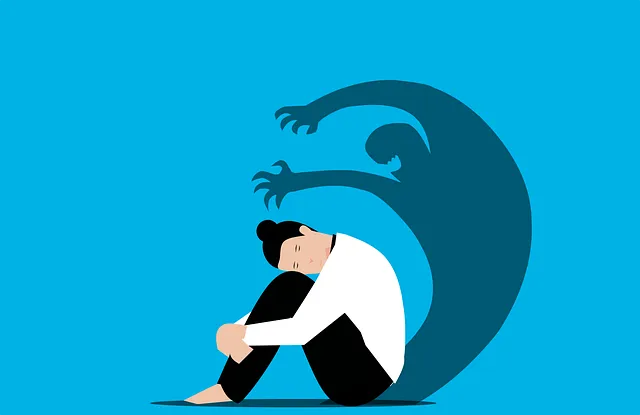Lone Tree Kaiser Permanente psychiatry prioritizes robust mental wellness self-assessment tools that offer personalized insights and evidence-based practices, such as CBT and Compassion Cultivation. These tools, available online or on mobile, enable early detection of conditions like depression and anxiety, foster trauma-informed care, and enhance patient engagement and satisfaction. Their innovative approach, integrating mindfulness and self-care techniques, has led to improved clinical outcomes and sets a standard for enhanced psychiatric care.
Mental wellness self-assessment tools play a crucial role in empowering individuals to take charge of their mental health. This article explores the development of personalized assessment tools tailored to the unique needs of patients at Lone Tree Kaiser Permanente Psychiatry. We delve into the process of creating effective tools, considering individual factors for optimal impact on patient care. Through case studies and expert insights, we demonstrate how these assessments enhance mental wellness outcomes at this leading healthcare provider.
- Understanding Mental Wellness Self-Assessment: A Need for Personalized Tools
- Creating Effective Assessment Tools: Considerations for Lone Tree Kaiser Permanente Psychiatry
- Implementation and Impact: Enhancing Patient Care at Lone Tree Kaiser Permanente
Understanding Mental Wellness Self-Assessment: A Need for Personalized Tools

Mental wellness self-assessment tools play a pivotal role in fostering Mental Health Awareness and enabling individuals to take charge of their well-being. In today’s fast-paced world, tailored assessment methods are essential to cater to the unique needs and complexities of each person’s mental landscape, especially considering the diverse range of experiences and challenges that contribute to one’s overall mental health.
At Lone Tree Kaiser Permanente psychiatry, we recognize that a one-size-fits-all approach may not be effective in assessing mental wellness. Thus, the development of personalized self-assessment tools becomes crucial, incorporating practices like Compassion Cultivation and enhancing Self-Awareness Exercises. By creating these customized resources, individuals can gain profound insights into their emotional states, thought patterns, and behaviors, fostering a deeper understanding of themselves and empowering them to make informed decisions regarding their mental health journey.
Creating Effective Assessment Tools: Considerations for Lone Tree Kaiser Permanente Psychiatry

Developing effective mental wellness self-assessment tools is paramount for organizations like Lone Tree Kaiser Permanente Psychiatry to deliver quality care. These tools play a pivotal role in early identification and intervention, crucial aspects in managing conditions such as depression and anxiety. When designing assessments, it’s essential to consider cultural sensitivity, ensuring the tool resonates with diverse patient populations. Accessibility and usability are also key; online platforms or mobile apps can enhance reach and convenience for both patients and healthcare providers.
Furthermore, integrating evidence-based practices into these tools is vital. For instance, incorporating aspects of cognitive behavioral therapy (CBT) techniques in self-assessment questionnaires can empower individuals to recognize negative thought patterns and trigger mechanisms. Additionally, tailored feedback mechanisms within the assessment tool can support trauma-informed care by offering personalized resources for coping strategies, thus enhancing the overall effectiveness of mental health services provided by Lone Tree Kaiser Permanente Psychiatry.
Implementation and Impact: Enhancing Patient Care at Lone Tree Kaiser Permanente

At Lone Tree Kaiser Permanente, implementing innovative mental wellness self-assessment tools has significantly enhanced patient care in their psychiatry department. These tools, designed to improve patient engagement and self-awareness, have been pivotal in addressing rising concerns about anxiety relief and overall emotional well-being. By integrating practices such as mindfulness meditation and self-care techniques into routine assessments, the facility has fostered a more holistic approach to mental health treatment.
The impact has been profound, allowing healthcare providers to offer personalized support tailored to each patient’s unique needs. This proactive strategy not only improves clinical outcomes but also empowers patients with the skills needed for effective self-management. As a result, Lone Tree Kaiser Permanente psychiatry services have seen increased patient satisfaction and improved mental health outcomes, setting a benchmark for enhanced care in the field of psychiatry.
The development of personalized mental wellness self-assessment tools, as exemplified by the successful implementation at Lone Tree Kaiser Permanente psychiatry, is a significant step towards enhancing patient care. By understanding individual needs and providing tailored assessments, healthcare providers can offer more effective support. This approach not only improves patient outcomes but also fosters a more inclusive and accessible mental health services ecosystem. As these tools continue to evolve, they have the potential to revolutionize how we navigate and address mental wellness concerns in today’s world.






